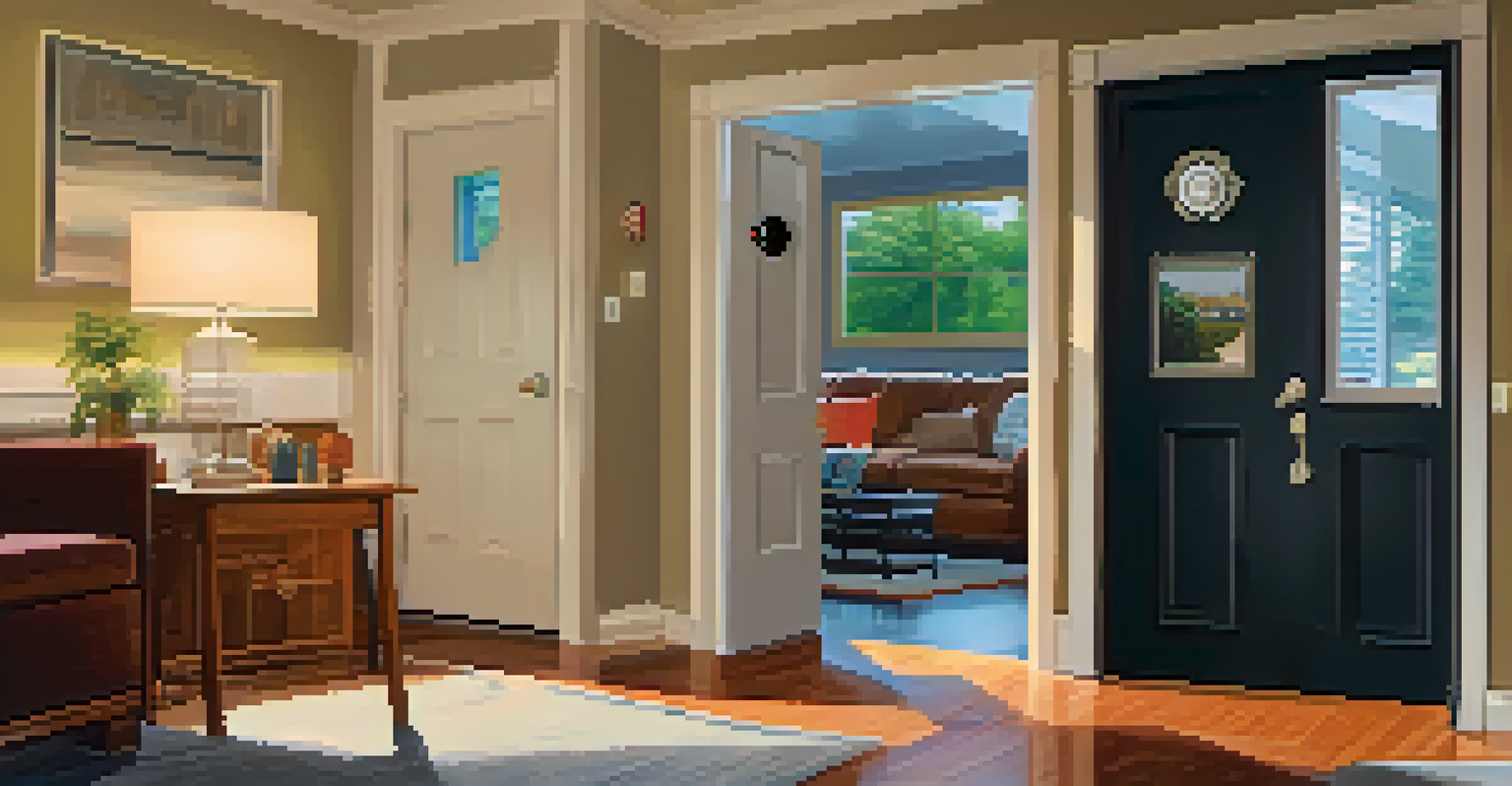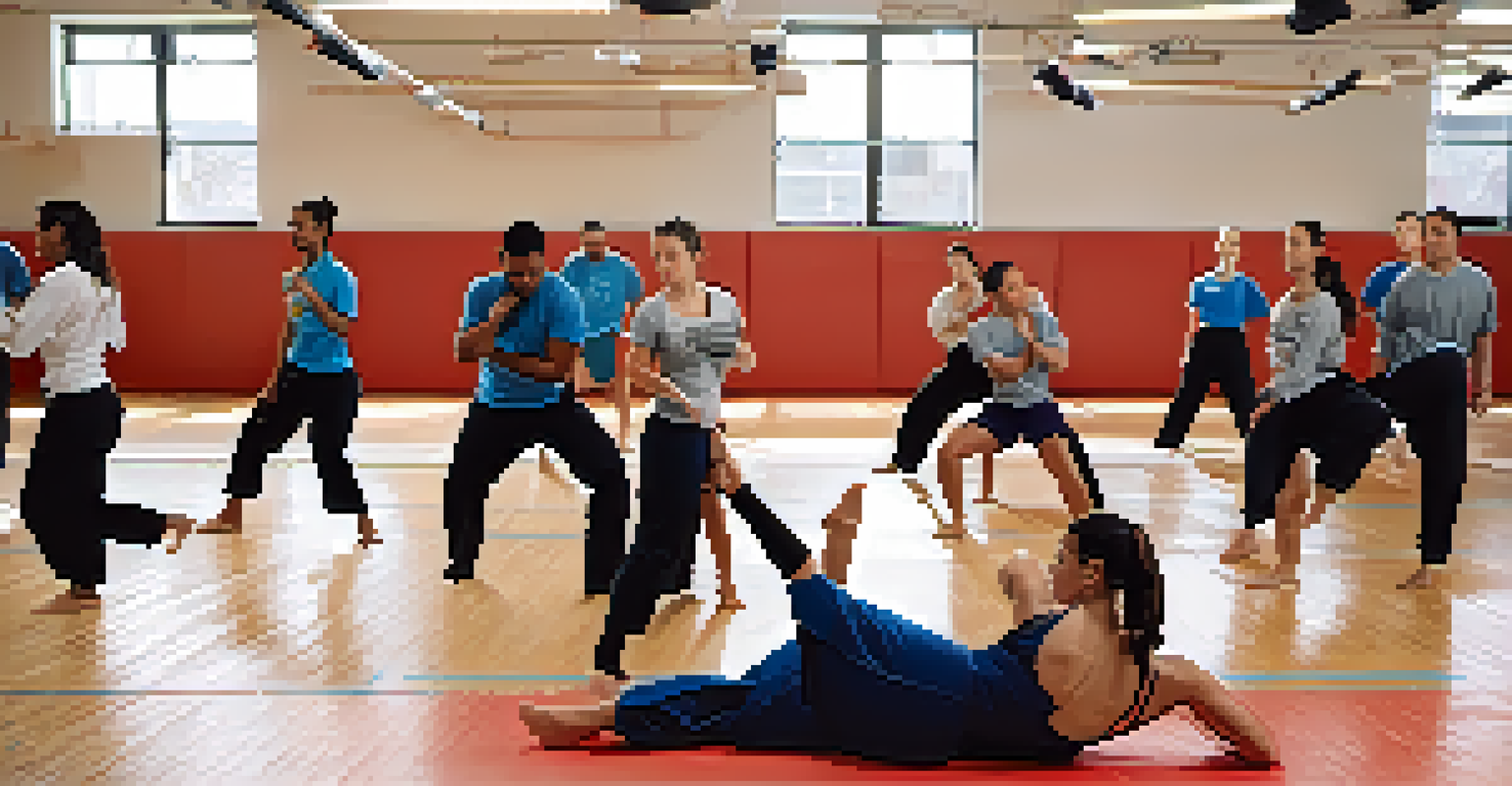Adapting Self Defense Techniques for Suburban Living Spaces

Understanding Your Suburban Environment for Safety
Living in a suburban area offers unique advantages and challenges when it comes to safety. The neighborhoods typically have well-defined boundaries, but they can also be more isolated than urban settings. This means that while you may feel a sense of community, it's crucial to stay vigilant and mindful of your surroundings to ensure personal safety.
The best defense is a good offense.
Familiarizing yourself with the layout of your neighborhood can be beneficial. Know where the nearest exits are, as well as the locations of community spaces, like parks or libraries. Having a mental map of your area can help you quickly identify safe spots in case of an emergency.
Additionally, understanding local crime trends can inform your self-defense tactics. Keep an eye on neighborhood watch reports or local news to stay updated on any incidents, allowing you to adapt your approach to self-defense accordingly.
Creating a Safe Home Environment
A secure home is your first line of defense. Start with the basics: ensure all doors and windows are locked, and consider investing in security systems or cameras. This not only deters potential intruders but also provides peace of mind.

Consider the layout of your home when thinking about self-defense. For instance, keep objects that can be used for defense, like a baseball bat or pepper spray, in easily accessible locations. Additionally, keep pathways clear for a quick escape if needed.
Enhance Safety in Your Community
Building a support network with trusted neighbors fosters vigilance and enhances safety in suburban areas.
Lastly, don't underestimate the power of good lighting. Well-lit areas discourage unwanted visitors and enhance your visibility. Motion sensor lights can be particularly effective, as they illuminate areas when movement is detected, making your home less appealing to intruders.
Developing Personal Awareness and Confidence
Personal awareness is one of the best self-defense tools you can cultivate. Being aware of your surroundings can help you detect potentially dangerous situations before they escalate. Simple habits like making eye contact with people around you or avoiding distractions, like your phone, can make a significant difference.
Preparedness is the key to safety.
Confidence plays a crucial role in self-defense as well. When you carry yourself confidently, you can deter potential threats simply by projecting assurance. Practice assertive body language—stand tall, make eye contact, and walk with purpose.
Engaging in self-defense classes can further boost your confidence and awareness. These classes teach you practical techniques while also encouraging you to trust your instincts and instincts, which are invaluable in any threatening situation.
Utilizing Everyday Objects for Defense
In suburban environments, you can repurpose everyday items for self-defense. For example, keys can be held between your fingers to create a makeshift weapon if needed. Even your cellphone can be a tool for safety; not only can it help you call for help, but it can also be used to record incidents.
Consider household items like a rolled-up magazine or a sturdy umbrella as potential defense tools. These objects can provide a surprising level of protection when wielded effectively. You might be surprised at how even common items can be transformed into effective self-defense tools.
Practice Self-Defense Regularly
Consistent practice of self-defense techniques boosts confidence and prepares you for real-life situations.
Always remember that the goal of using these objects isn't to engage but to create enough distance to escape. The priority should always be personal safety and retreating to safety whenever possible.
Building a Support Network for Safety
Creating a network of trusted neighbors can enhance safety in your suburban community. Having a group of people you can rely on not only builds relationships but also fosters an environment of vigilance. Neighbors can keep an eye on each other’s homes and report unusual activity.
Consider organizing regular meet-ups or communication channels, like a group chat, to discuss safety concerns or share tips. This community involvement can make everyone feel more secure and aware of their surroundings.
Moreover, participating in local neighborhood watch programs can strengthen your support network even further. These initiatives empower residents to take an active role in their security while building a sense of community.
Practicing Self-Defense Techniques Regularly
Just like any skill, self-defense techniques need practice to be effective. Set aside time to rehearse various techniques, whether it's through formal classes or at home. Regular practice helps reinforce muscle memory, making it easier to react in emergencies.
Consider partnering with friends or family members to practice together. This not only makes the learning process more enjoyable but also helps simulate real-life scenarios, allowing you to feel more comfortable in your actions.
Understand Self-Defense Laws
Knowing the legal aspects of self-defense equips you with the knowledge to navigate high-pressure situations responsibly.
Additionally, practicing self-defense techniques regularly can build your confidence. The more familiar you become with your skills, the more prepared you'll feel, which is a crucial element in any self-defense situation.
Understanding the Legal Aspects of Self-Defense
When it comes to self-defense, it’s important to understand the legal implications in your area. Laws regarding self-defense can vary significantly, so do some research to know what is permissible. Knowing your rights can help you make informed decisions in high-pressure situations.
Educating yourself about what constitutes reasonable force is essential. Many jurisdictions allow for self-defense only if there is an imminent threat, and the response must be proportional to that threat. Understanding these nuances can help you navigate potentially dangerous situations responsibly.

Consider attending workshops or seminars that focus on self-defense laws. These sessions can provide clarity and ensure you’re well-informed, thereby equipping you with knowledge that supports your safety practices.